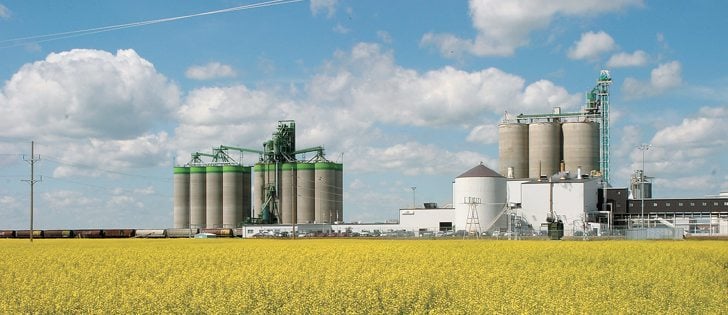Alliance Grain Traders completed a year of growth and transition in 2009, posting net income of almost $30 million, up 35 percent from $22.2 million in 2008.
The Regina pulse crop processor and trader changed from an income trust to a dividend-paying corporation and in September bought Arbel Group, a food company in Turkey, for $104 million.
It created a company with operations in all major pulse exporting regions of the world: Canada, Australia, the United States and Turkey.
Two additional purchases in December of prairie-based pulse processors Finora Inc. and Parent Seed Farms further expanded the company.
Read Also

August rain welcome, but offered limited relief
Increased precipitation in August aids farmers prior to harvest in southern prairies of Canada.
President and chief executive officer Murad Al-Katib said 2009 was a transformative year.
“Ours is not a commodity story, it is a food story, with one of the results being quality earnings for our shareholders,” he said in a conference call with financial analysts.
The company had a strong year, capitalizing on booming lentil exports from Canada. It also refurbished some existing operations in Canada, the U.S. and Australia during the year, Al-Katib said.
“But those are not the factors that fully drove our growth,” he added.
“The real catalyst that will add to the growth of our company over the coming years is the acquisition of the Arbel Group in Turkey.”
The deal marked the closing of a circle because in 2001, the Arslan family, principles of Arbel, established with Al-Katib Saskcan Pulse Trading Inc., which grew to become Alliance Grain Traders.
The Arbel-Alliance deal brings together the two largest pulse businesses in the world.
In addition to expanding the company’s exposure to Turkey, a major pulse production region, it moves it further into the realm of food manufacturing.
Arbel has a small pack retail business, milled wheat products like bulgur and semolina, the Arbella brand of pasta, rice and other foods like popcorn and sunflower seeds.
Al-Katib is particularly interested in Arbel’s pasta business.
“In only three years, Arbella has become the No. 3 domestic brand in Turkey. We have introduced this brand into 46 countries around the world. It is currently an import brand leader in Japan and Israel and it is increasing its market share in many markets into which it has been introduced.”
He noted that Turkey is now the world’s second largest pasta exporter after Italy and some analysts forecast that it will surpass Italy in the coming decade. He also identified beans and chickpeas as growth areas.
Whereas other pulses have peak consumption periods in winter, beans tend to be consumed year round with the growing popularity of Mexican food.
“With over one million tonnes of estimated consumption in the U.S. market alone, there are big opportunities in beans. And with no identified global, multi-origin bean processor, we see the potential to take a significant piece of a fragmented global market.”
Chickpeas are tied to the growing popularity of hummus, which is moving from an ethnic dish to wide popularity.
“We will not convert North American and Western European consumers into lentil consumers five times a week, but we will see mothers buying foods for their children that contain pulse flour as a main ingredient used to fortify protein and vitamin profile while lowering the product’s glycemic index,” Al-Katib said.
The coming year will be busy for the company as it knits together its new holdings and processes another big pulse crop in Canada.
The Arbel acquisition began to have a significant impact on Alliance Grain’s balance sheet only in the fourth quarter and the Finora and Parent deals did not close until the end of the year.
It paid $10 million for Parent Seed Farms in St. Joseph, Man., which has two processing plants and a special focus on bean processing.
It paid $9.1 million for Finora, which has plants at Wilkie and Assiniboia, Sask., and Gibbons, Alta.














